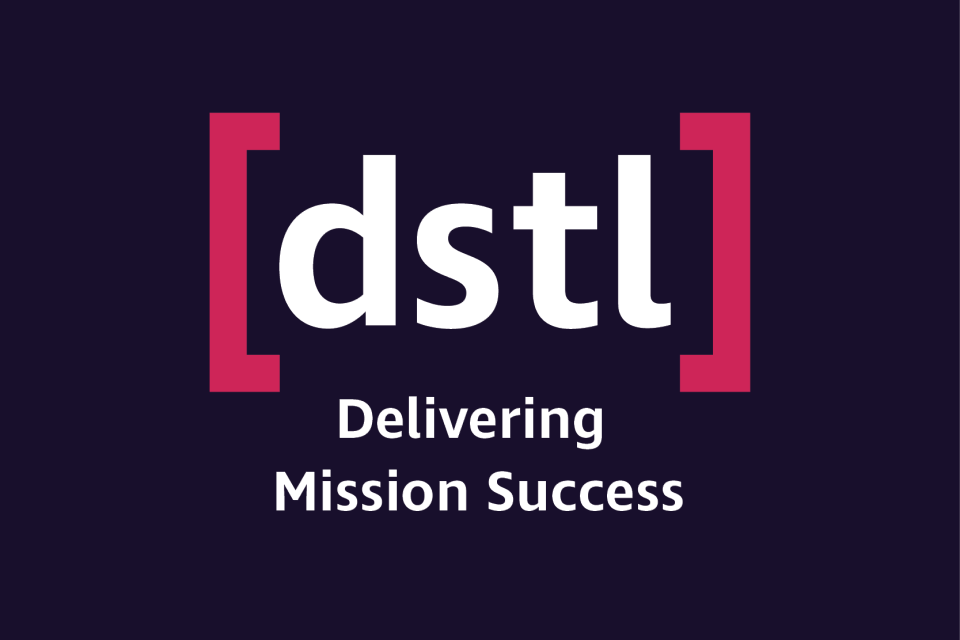About us
The Defence Science and Technology Laboratory (Dstl) brings mission success to UK defence and security through science and technology advantage.
Who we are
Dstl is the Ministry of Defence (MOD)’s in-government science and technology organisation, providing unique expertise, crucial insights and delivering innovative mission-winning solutions essential for maintaining UK warfighting readiness in an increasingly dangerous and complex world.
We are proud to be part of the National Armaments Director (NAD) Group. Together we maximise our warfighters’ ability to operate, deter, fight and win.
Our responsibilities
Dstl find, integrate and fix problems for UK defence and security and provide science and technology solutions for UK sovereign capabilities.
Our responsibilities include:
- supplying sensitive and specialist science and technology services for MOD and wider government
- providing and facilitating expert advice, analysis and assurance on defence procurement
- leading on the MOD’s science and technology programme
- understanding risks and opportunities through horizon-scanning
- acting as a trusted interface between MOD, wider government, the private sector and academia to provide science and technology support to military operations by the UK and her allies
- championing and developing science and technology skills across MOD
- international work such as coordinating the UK’s involvement in NATO science and technology activity
Find out more about Dstl’s capability areas and examples of our recent work.
Our priorities
We help MOD to implement the recommendations in the Integrated Review Refresh 2023 and the Defence Command Paper 2023. We are predominantly responsible for delivering the Ministry of Defence’s science and technology portfolio.
Our strategy, set out in 2023, has 4 aims:
- enabling operational advantage at pace
- shaping the defence and security landscape
- preparing for the future
- leveraging and influencing internationally
For more information about our strategy, priorities and current work, read our latest corporate plan and our latest annual report.
Who we work with
Dstl works mainly with MOD, but because of our expertise and facilities, particularly in the wider area of UK defence and security, we work across government for more than 40 government departments and agencies.
We work with our partners in industry, academia and internationally, using science and technology to help to solve defence and security challenges.
We sustain and grow science and technology capabilities that must remain in government (the UK’s sovereign capabilities), and help develop capabilities that are managed elsewhere, for example, in industry and academia.
Find out about our relationship with MOD and how to sell to or work with Dstl.
The Defence and Security Accelerator is part of Dstl.
Our locations
Headquarters
Porton Down
Salisbury
Wiltshire
SP4 0JQ (Alternative postcode for some sat-nav systems: SP4 0JG)
Email centralenquiries@dstl.gov.uk
Central enquiries 01980 950000
Dstl Porton Down on Google Maps
Defence Science and Technology Laboratory Portsdown West
Portsdown Hill Road,
Fareham
Hampshire
PO17 6AD
Dstl Portsdown West on Google Maps
Defence Science and Technology Laboratory Alverstoke
Crescent Road
Gosport
Hampshire
PO12 2DL
Dstl Alverstoke on Google Maps
Defence Science and Technology Laboratory Newcastle
The Catalyst
3 Science Square
Newcastle Helix
Newcastle
NE4 5TG
Our history
Dstl was formed on 1 July 2001 from the split of the Defence Evaluation and Research Agency (DERA) but we can trace the origins of our organisation back to 1664. More information on the organisations and their work that became Dstl can be found in the National Archives.
